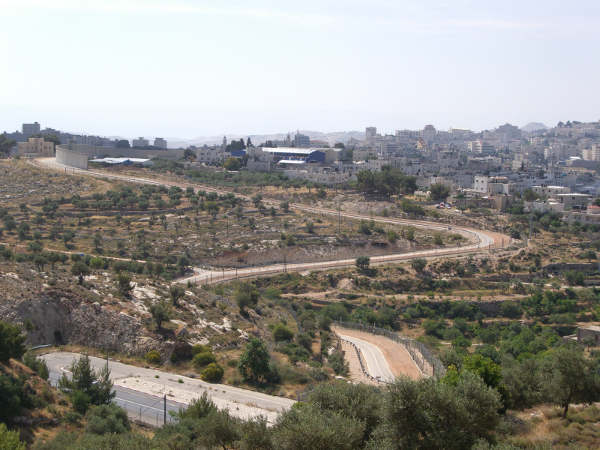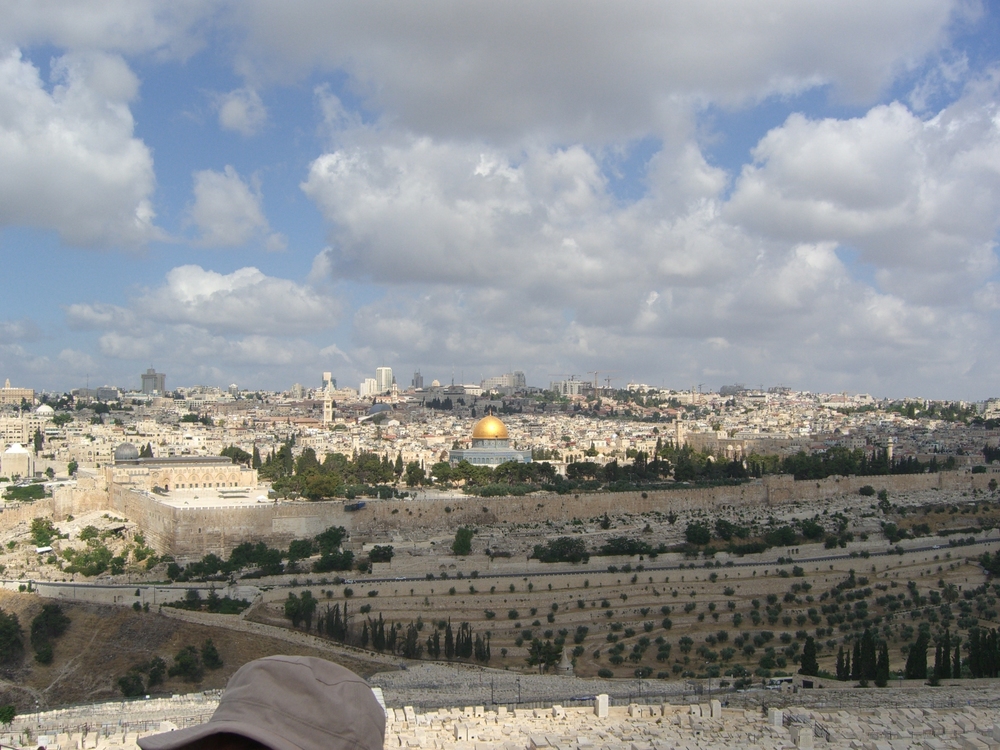Be careful then how you live (Eph 5:15). That’s a pretty neat and concise line, isn’t it? Everything important has been said already. Everything God has done has been said already. Now it’s your turn; be careful then how you live.
Nancy and I have been talking about college application essays and she told me about the kid who got into Harvard with an essay of four syllables. “Why do you want to go to Harvard?” was the topic. The kid wrote, “I want to learn.” When what needs doing has been done and what needs saying has been said, you can be brief.
Life, according to the letter to the Ephesians, is now the life of reconciliation in Christ. What needs doing has been done. All of creation, things on earth and things in heaven are on a trajectory toward shalom. Be careful then how you live. Remember that you have been chosen and called by God, and live worthy of your calling. Remember that you, all of you and the ones you still call them, rembember that you are one body in Christ, and live accordingly. Remember that you are being rooted and grounded in love – not in sin, or fear, or shame – remember and live.
Wake up, sleeper! Rise from the dead, and Christ will shine on you (5:14). Live as a child of that light, in that light. Everything else is commentary: Don’t live foolishly, but wisely. Don’t live in ignorance, but in the knowledge of God’s will for creation, that is, to bring unity to all things in heaven and on earth, in Christ (1:9-10). Make the most of the time because it is precious. Align every moment of your life with God’s movement toward the glorious fulfilment of creation’s purpose. Do not get drunk with wine, for that is debauchery.
You could have a little fun with that part of the letter, pointing out that getting drunk with beer or Jack must apparently be OK since they aren’t mentioned here and where the scriptures are silent, we are silent. We could have a little fun with that verse. A Methodist colleague of mine grew up as an heir of that tradition’s tee-totaling commitment; he even avoided “butter rum” LifeSavers: the flavoring, he was told, might lead him down a path of ruinous temptation.[1]
We could have a little fun with that verse. But if you struggle with alcohol addiction or if you grew up in a family where excessive drinking triggered destructive behavior or if you even just heard how excessive drinking increases the likelihood of sexual assault exponentially or if you have talked to men and women who found themselves in prison or on the street because of the demon drink, if any of those apply to you, you may not feel like having a little fun with the letter’s cautionary instruction. In fact, you may want to suggest that we broaden the term wine to include all drugs, all habits, all dependencies that ultimately fill us with numbness and prevent us from being filled with the fullness of God (3:19), which is the fullness of love and life. Do not get drunk with fake life, for that is debauchery; but be filled with the Spirit. Be filled with the fullness of God by the Spirit. Fake life may sparkle in the cup and go down smoothly, but at last it bites like a snake and leaves you numb; being filled with it is like being drained of life that is real.
Being filled with the Spirit also has its intoxicating effects: You sing psalms and hymns and spiritual songs to each other, you sing and make melody to the Lord in your hearts, you give thanks to God the Father at all times and for everything in the name of our Lord Jesus Christ, and you are subject to one another out of reverence for Christ. Being filled with the Spirit causes all kinds of singing and music to erupt, thanksgiving to rise, and mutual submission to flourish. Being filled with the Spirit causes our hearts to sing, our lips to brim over, and our life together to sound and feel and smell and look and taste like heaven. Being filled with the Spirit our life turns into worship, from the center of our being and with our whole being. For a moment, heaven and earth are one as they are meant to be and as they will be when God has completed the work of redemption. Be careful then how you live, because any moment can be that moment when fullness shines through.
Perhaps you wondered why we have included a couple more psalms, hymns, and spiritual songs in today’s worship service. Are you still wondering?
Over the next few weeks we will have a series of educational programs on worship with a variety of teachers, every Sunday morning at 9, in our fellowship hall. Because our reading from Ephesians invites us not only to sing, but also to reflect on singing as an essential part of our life and worship, I wanted to share a handful of brief texts about singing from various generations of the church. One of these texts will take us back all the way to the beginning of creation, so I don’t need to go that far.
I.
The first Christians worshiped in homes, and Paul, in 1 Corinthians 14, gives us a glimpse of what happened in their gatherings:
“When you come together, each one has a hymn, a lesson, a revelation, a tongue, or an interpretation” (14:26).
Among that first generation of believers, they didn’t worry about what to wear to church or how long the service would be; they thought about what to bring, and apparently to bring a hymn meant to sing it. And those who brought a lesson or a prayer also sang, because the scriptures were chanted rather than spoken.
II.
Four generations later, Tertullian (c. 170-225), a famous Christian writer from North Africa, described what happened in their gathering:
“After the washing of hands and the lighting of lamps, each is urged to come into the middle and sing to God, either from sacred scriptures or from his own invention.”[2]
How about that? What if you were too shy to step into the middle and sing? Could you perhaps just stay in the circle and hum or clap? He doesn’t mention anything about that.
III.
A couple of hundred years later, when there were buildings designed specifically for Christian worship, Bishop Ambrose of Milan (4th century) said in a sermon,
“This is a symphony, when there resounds in the church a united concord of differing ages and abilities as if of diverse strings. [This symphony] joins those with differences, unites those at odds and reconciles those who have been offended, for who will not concede to him with whom one sings to God in one voice?”[3]
Beside the power of our praise for building up the body of Christ, uniting differing abilities in congregational song was a great development for worshipers convinced they cannot sing (I won’t name any names), because they could blend into the symphony of praise with the saints and angels, regardless of what the pitch was in heaven. Together we sound magnificent!
IV.
Augustine, also from North Africa, was very concerned about not letting the sweetness of melodies distract from the sacred words of songs, but then he surprised everybody with statements sounding very pentecostal:
“Do not search for words, as if you could find a lyric which would give God pleasure. Sing to [God] “with songs of joy.” This is singing well to God, just singing with songs of joy. But how is this done? You must first understand that words cannot express the things that are sung by the heart. Take the case of people singing while harvesting in the fields or in the vineyards or when any other strenuous work is in progress. Although they begin by giving expression to their happiness in sung words, yet shortly there is a change. As if so happy that words can no longer express what they feel, they discard the restricting syllables. They burst out into a simple sound of joy, of jubilation. Such a cry of joy is a sound signifying that the heart is bringing to birth what it cannot utter in words. Now, who is more worthy of such a cry of jubilation than God (…), whom all words fail to describe? If words will not serve, and yet you must not remain silent, what else can you do but cry out for joy? Your heart must rejoice beyond words, soaring into an immensity of gladness, unrestrained by syllabic bonds.”[4]
That is very good news for those of us who know the first verse of some hymns, but little else, and can’t see a thing without reading glasses – we don’t need to pretend to be singing along with everybody else by mouthing all the words, no, we sing joyfully and lustily with A’s and U’s and O’s, unrestrained by syllabic bonds.
V.
One more voice, this one from the first half of the 20th century. Dietrich Bonhoeffer wrote in Life Together,
“‘Sing to the Lord a new song,’ the Psalter enjoins us again and again. It is the Christ-hymn, new every morning, that the family fellowship strikes up at the beginning of the day, the hymn that is sung by the whole Church of God on earth and in heaven, and in which we are summoned to join. God has prepared for himself one great song of praise throughout eternity, and those who enter the community of God join in this song. It is the song that the ‘morning stars sang together and all the sons of God shouted for joy’ at the creation of the world (Job 38:7). It is the victory song of the children of Israel after passing through the Red Sea, the Magnificat of Mary after the annunciation, the song of Paul and Silas in the night prison, the song of the singers on the sea of glass after their rescue, the ‘song of Moses the servant of God, and the song of the Lamb’ (Revelation 15:3). It is the new song of the heavenly fellowship.”[5]
Christ has made us his own. Let us be careful then how we live; let us join the song.
[1] L. Gregory Jones, “Trouble brewing.” The Christian Century 123, no. 17, p. 35.
[2] OxHCW, 770.
[3] OxHCW, 773.
[4] SBM, 61.
[5] SBM, 136.









